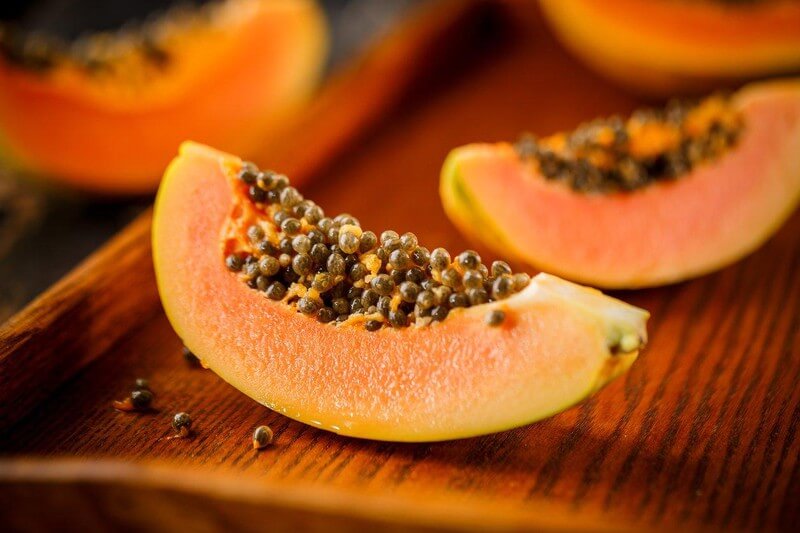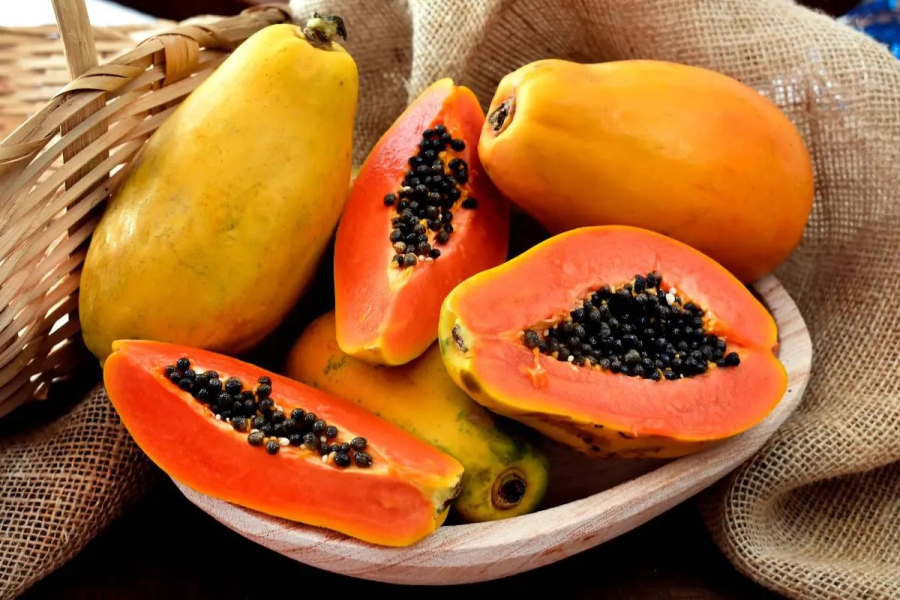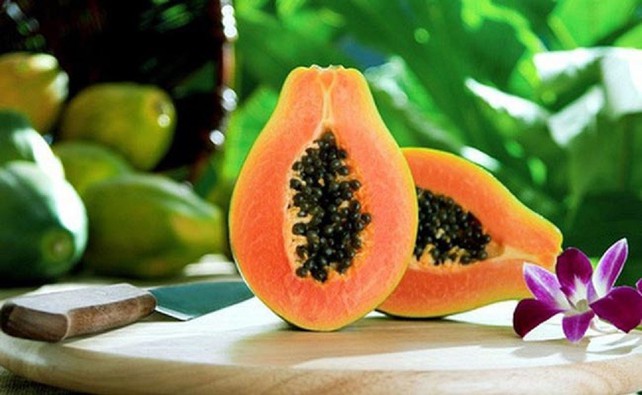– Energy: 59 calories
– Protein: 1g
– Carbohydrates: 15g
– Fiber: 3g
– Potassium: 11% of the daily nutritional requirement (RDI)
– Vitamin B9: 14% RDI
– Vitamin A: 33% RDI
Additionally, papayas contain other vitamins such as B1, B3, B5, K, and E, along with carotenoids, the enzyme papain, quercetin, flavonoids, and zeaxanthin. Notably, papayas are richer in beta-carotene, a precursor of vitamin A, compared to many other vegetables.
When ripe, about 90% of a papaya’s weight is water, 13% is sugar, and it contains no starch. It is abundant in organic acids, carotenoids, and antioxidants, offering significant benefits for cardiovascular health and potential protection against colorectal cancer.

Ripe papaya is approximately 90% water and 13% sugar, with no starch, and is rich in organic acids, carotenoids, and antioxidants.
Despite its health benefits, papaya consumption may not be suitable for everyone. Here are some groups of people who should limit their intake of this fruit:
**People with Skin Concerns:**
If you notice changes in your skin color, particularly a pale yellow discoloration of the palms, you may have a benign condition called carotenemia. Papayas contain beta-carotene, a carotenoid that provides the body with vitamin A. However, excessive beta-carotene intake can lead to skin discoloration.
**Individuals with Gastrointestinal Disorders:**
Consuming too much papaya may result in adverse digestive symptoms. While the enzyme papain in papayas aids digestion and soothes the stomach, excessive consumption can also cause stomach pain.

Excessive papaya consumption may lead to gastrointestinal symptoms.
**People with Low Blood Sugar Levels:**
According to Doctor Vân, fermented papaya can lower blood sugar levels. For individuals with already low blood sugar, consuming this type of papaya may further decrease their glucose levels, requiring caution.
**Those with Hypothyroidism:**
Cyanogenic glycosides found in papayas can affect heart rate and interfere with iodine synthesis and metabolism in the body, exacerbating symptoms in individuals with hypothyroidism. However, this impact only occurs when papayas are consumed in large quantities.
**Individuals with Irregular Heart Rates:**
People with heart rhythm disorders may experience worsened symptoms if they consume papaya. Research has discovered that papayas contain small amounts of cyanogenic glycosides, amino acids that can metabolize into hydrocyanic acid in the digestive system. While a small dose of this compound is harmless to those with heart conditions, excessive intake may lead to health risks.

Individuals with heart rhythm disorders may experience worsened symptoms if they consume papaya.
**Points to Remember When Enjoying Ripe Papaya:**
**_Limit Daily Papaya Consumption:_**
Although papaya is a nutrient-rich fruit, it should not be consumed daily and continuously for extended periods. Eating too much papaya over a long period can lead to yellow discoloration of the palms and soles of the feet. This condition will only disappear after a period of abstinence from the fruit.
**_Avoid During Diarrhea:_**
Similar to many other high-fiber fruits, papaya is unsafe to consume during diarrhea. More dangerously, consuming papaya in this condition can lead to severe dehydration.
Keep these points in mind to ensure your health and well-being when enjoying ripe papaya!
The Ultimate Egg Fry: A Japanese Twist on a Classic
The Vietnamese have a unique tradition of frying eggs with scallions, resulting in a delicious and nutritious dish. The secret lies in the aromatic scallions, which elevate the humble egg into a culinary masterpiece. By incorporating these flavorful greens, you’ll discover a mouthwatering and wholesome treat that will tantalize your taste buds.





































